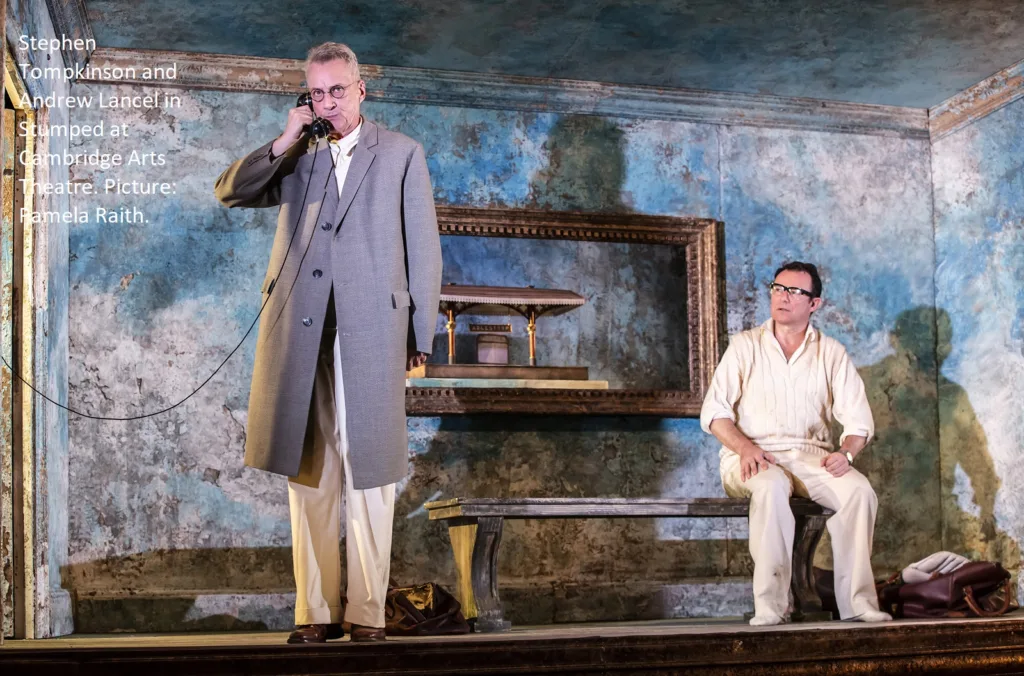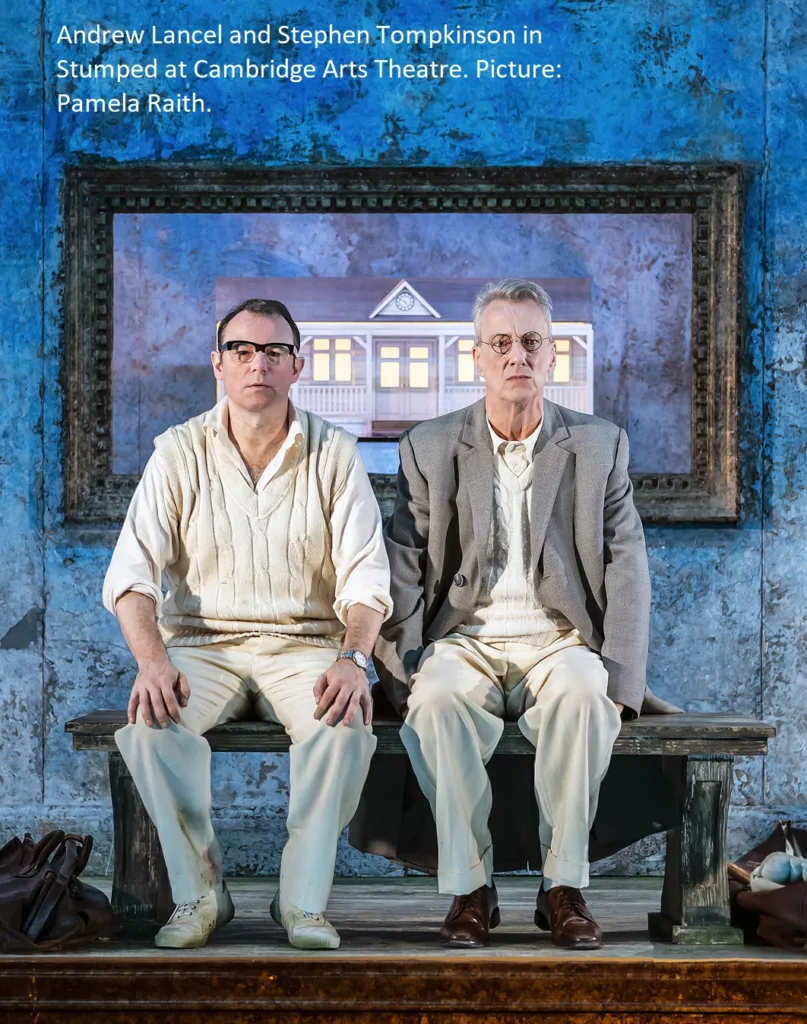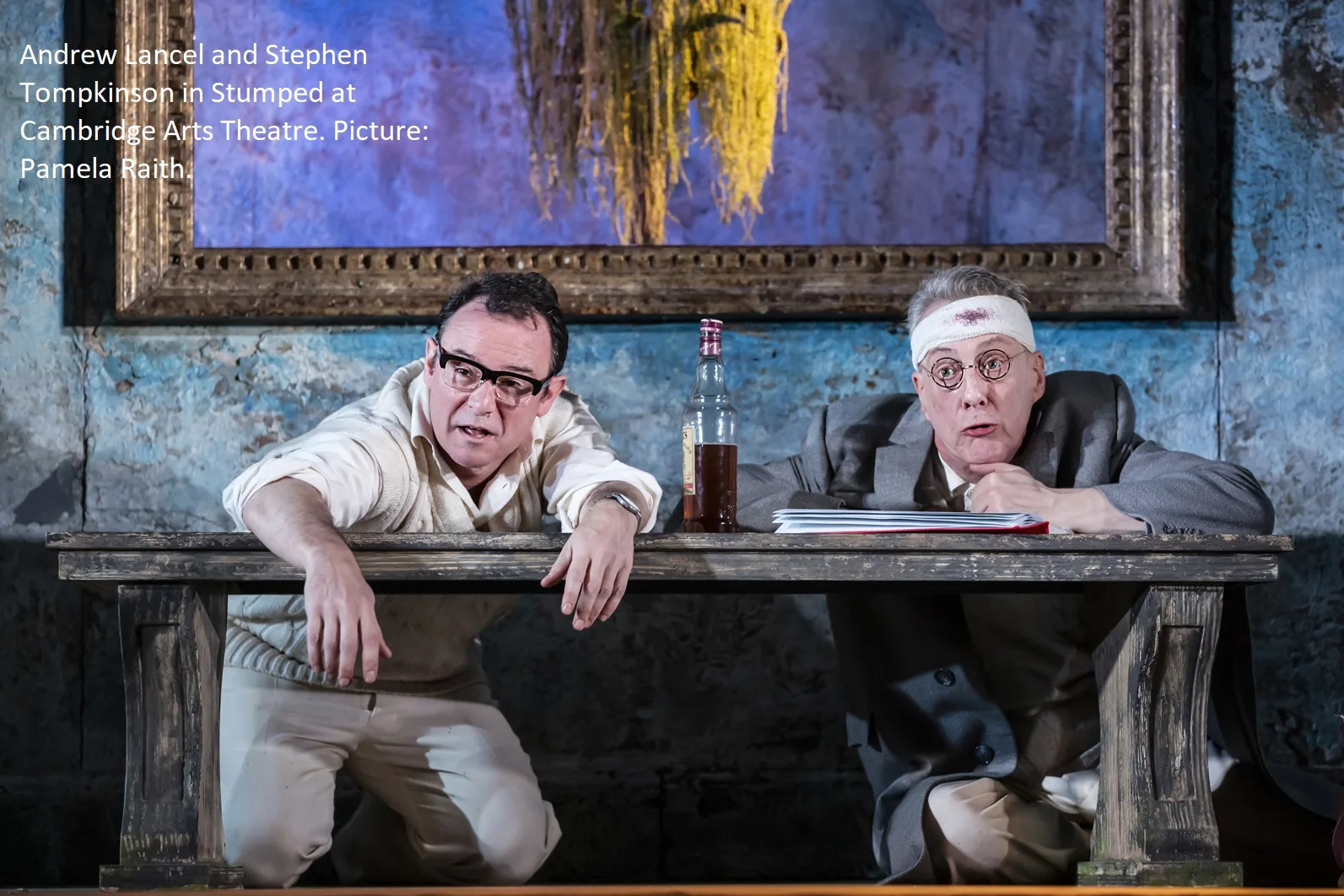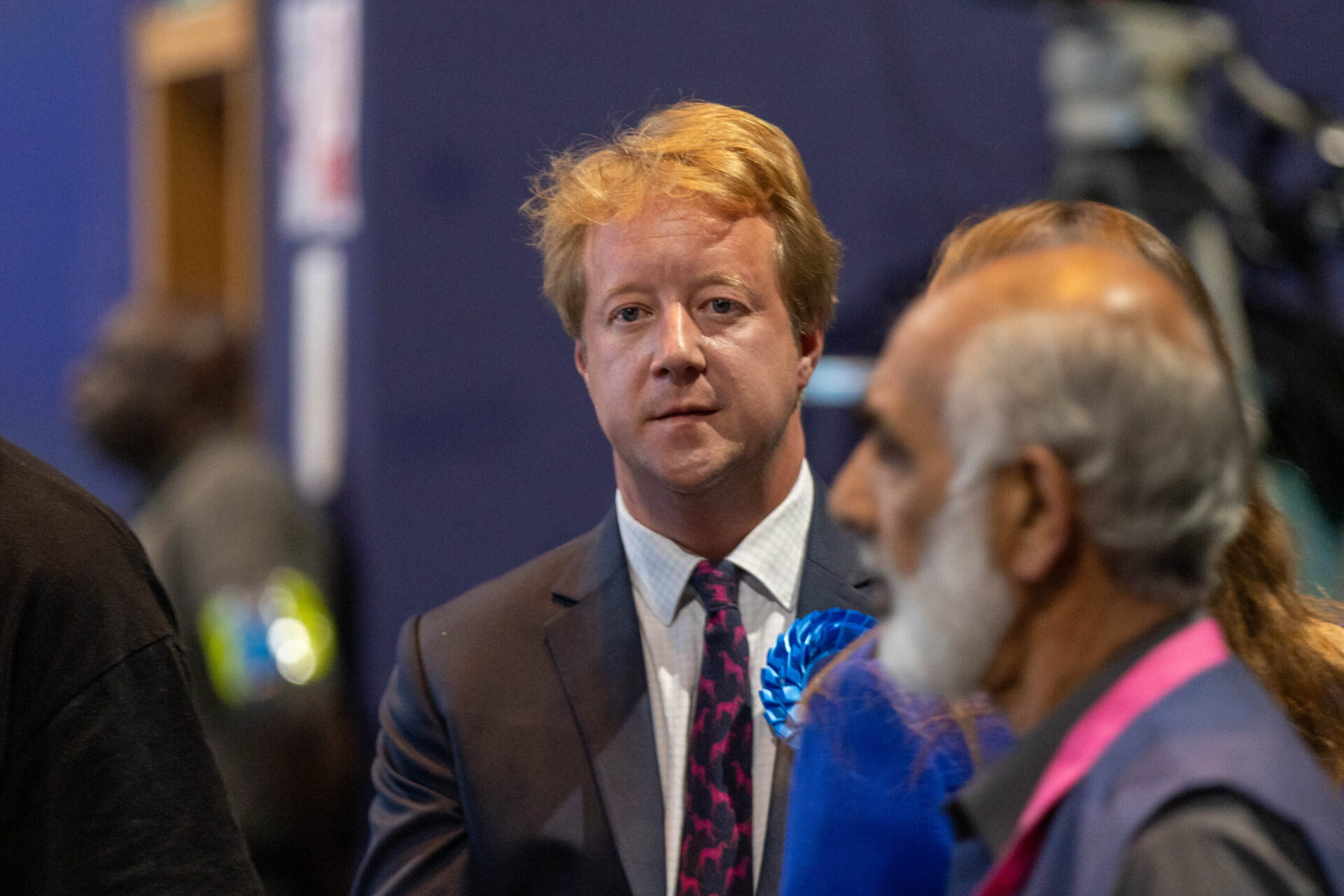This play is ingenious. It will become a classic. It is a joy. See it at least once. It’s clever and it’s funny.
It supposes that Harold Pinter and Samuel Beckett – who were good friends for decades, both passionate about cricket – played a match together for an obscure team in the Cotswolds.
In real life, they met in 1961 when Beckett was in his 50s and Pinter about 30. They remained friends from then on. Stephen Tompkinson is a tour de force as Beckett, neurotic, eloquent, a willowy, walking human poet.
He is matched by Andrew Lancel as the more earthly – rather gauche Pinter – with his signature black glasses.

The play, immaculately written by Shomit Dutta, who is both a classicist and a cricket aficionado, is full of references to Ancient Greece and Rome – and Shakespeare.
It’s three scenes have “wait” as the theme. “Wait” being what one batsman will call to another when he is uncertain of their having time to make a run and, of course, in Beckett’s Waiting for Godot, the two tramps Estragon and Vladimir spend the entire play waiting for a character who might turn up at any moment but never comes.
As the play opens, the two playwrights are dressed in their cricket whites waiting to go in to bat. Beckett is scoring the game, irritated because Pinter hesitates to pad up.
In the second scene, Tomkinson’s tall, immaculate Beckett renders a magnificent, move by move description of how the hapless Pinter has committed the cardinal sin of encouraging his non-facing batsman to run – so that he is “out without having faced a ball”.
Now the batsman who they suspect is called Doggo, will hate him.
The man stormed off, says Beckett, and smashed his bat.
Beckett’s poetic, pitiless word picture, created so you see the scene, is peppered with classical allusions. Beckett, a graduate of Trinity College, Dublin had an education which meant he could call up lines in Latin, Ancient Greek, and Hebrew effortlessly and quote lines from Shakespeare as a natural part of his conversation.

In the third scene, they are waiting for a lift “back to civilisation”. First a lift in a car from Doggo, then a train and at times even a horse. They never leave the spot.
Sharply directed by Guy Unsworth with an inspired set inside a giant picture frame by David Woodhead and incidental sixties jazz music composed by Mark Aspinall, this is a play worth seeing several times to drink in the lines and enjoy a masterclass in performance. It’s an absolute must see.
Stumped is at Cambridge Arts Theatre until Saturday, June 10 and then at Hampstead Theatre in London from June 16 to July 22.















